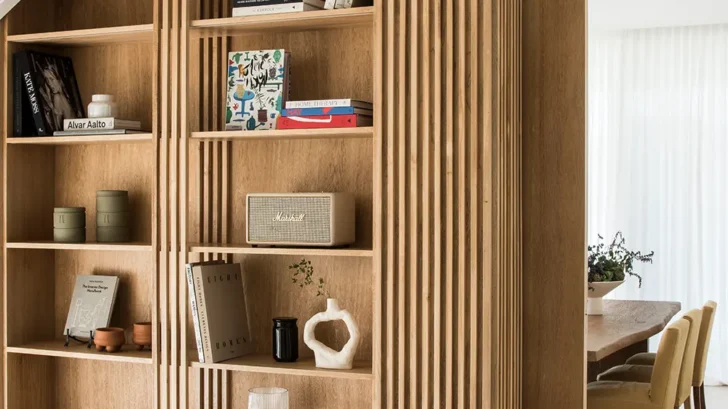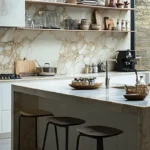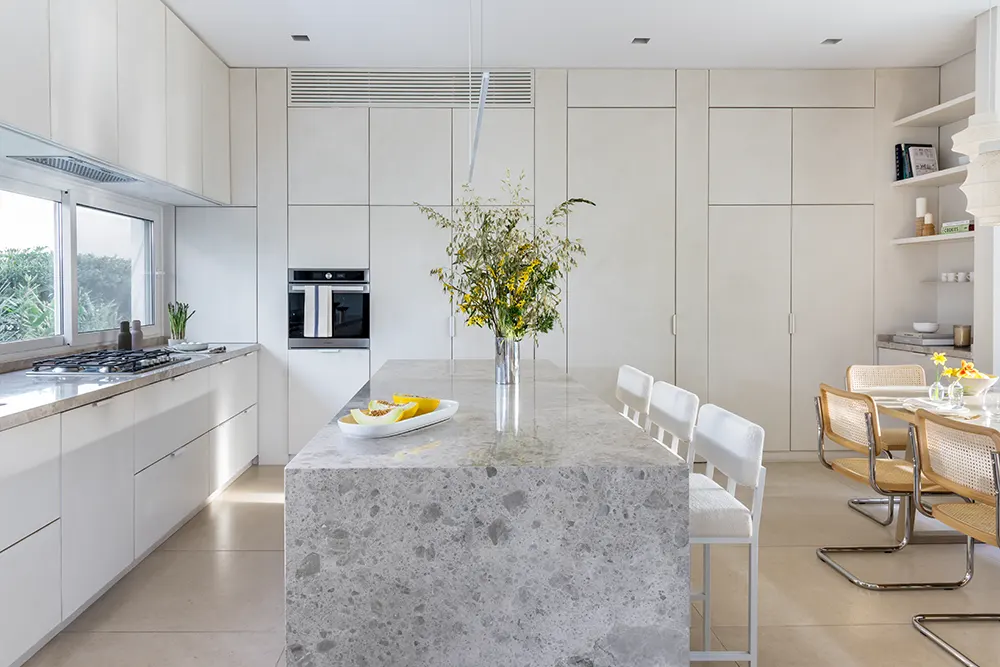
In their interview with ARCHISCENE Magazine, Melazza co-founders Florencia Melazza and Malena Taboada open up about Casa Salt Rough, a lakeside home defined by softness, restraint, and emotional clarity. Located in a serene natural setting, the project unfolds through gentle transitions and honest materials, with light, texture, and proportion guiding each design decision.
INTERVIEWS
Casa Salt Rough distills daily rituals into form, inviting its inhabitants to live slowly and deliberately. With rounded furniture, a subdued palette, and curated openness, the space supports a mood of quiet intimacy without retreating into minimalism. In the conversation, the designers speak about crafting homes that don’t seek to impress, but to understand spaces that absorb life and return it with warmth and clarity.
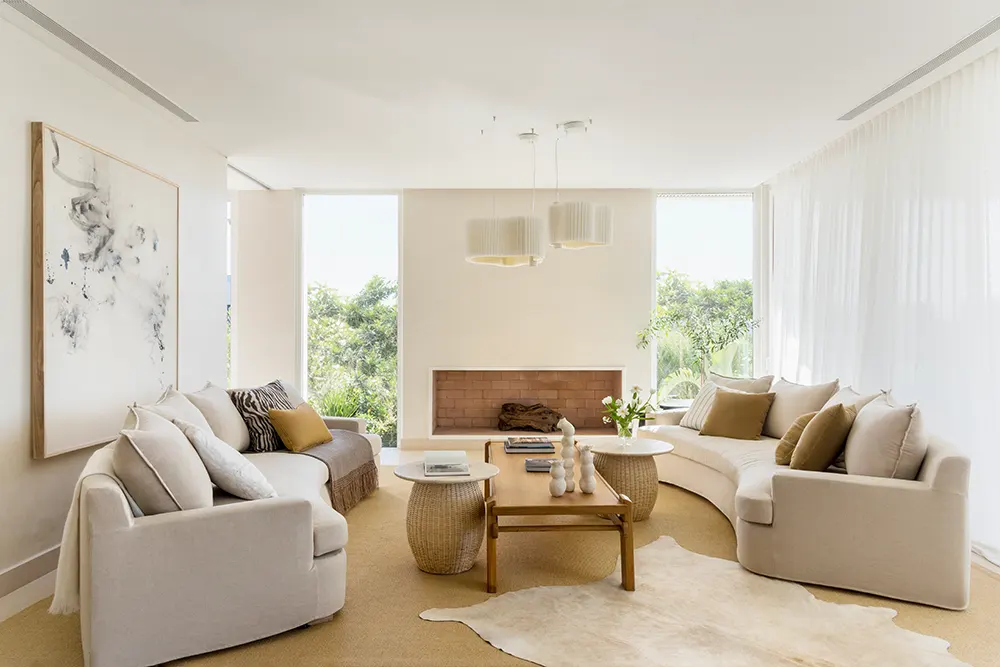
Casa Salt Rough is described as “a serene lakeside home where living becomes an act of poetry.” How did you translate this poetic vision into tangible design elements throughout the interiors?
From the very beginning, we wanted the house to feel calm and authentic. We worked with a soft palette, natural materials, and furniture with curved lines to create a serene atmosphere that invites rest. We avoided clutter and aimed to let each space breathe, supporting the slow rhythm we imagined for life by the lake.
The project balances function with emotional resonance. What were the key challenges in achieving this subtle equilibrium, and how did you address them in your material and furniture choices?
The key was ensuring everything was both useful and warm. Things had to work well, but also forge a connection with those who use them. We chose noble materials that feel good to the touch and age gracefully. As for the furniture, we sought simple, embracing shapes that offer comfort without losing character.
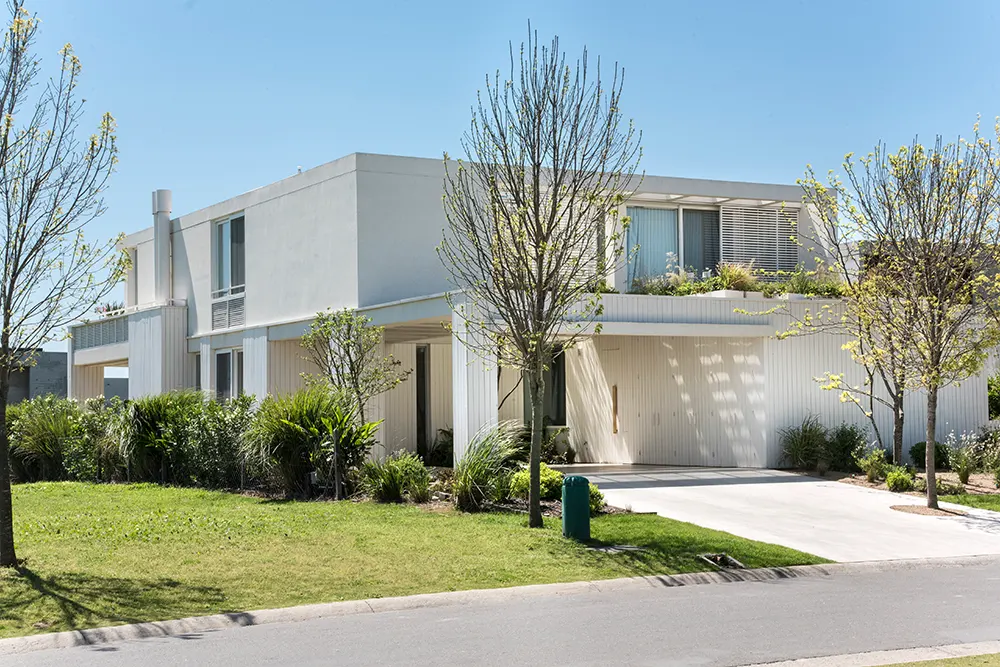
The palette features whites, unbleached linen, greens, and warm woods. How did you decide on this color scheme, and what mood or atmosphere were you aiming to evoke for the residents?
We wanted the house to echo what’s seen through the windows: greenery, water, soft light. That’s why we chose light, natural tones that don’t compete with the landscape. This palette helps create a relaxed and welcoming mood. A space where you can feel calm and at ease, free from distractions.
The furniture, designed and produced by Estudio Melazza, emphasizes rounded forms and honest materials. What inspired this approach, and how does it contribute to the home’s overall sense of calm and warmth?
We’re deeply inspired by soft forms because they evoke closeness and soothe the eye. We avoided sharp angles so everything could flow more naturally. We also worked with materials that feel genuine: wood, linen, stone. We want our furniture to support daily life with warmth, that is, to be lived in, not just looked at.
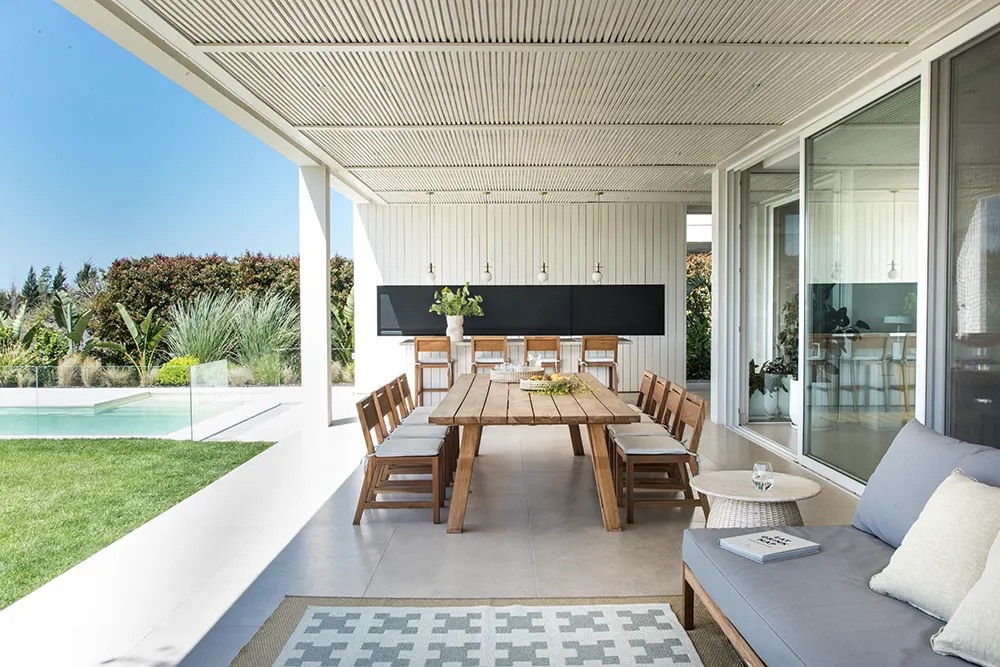
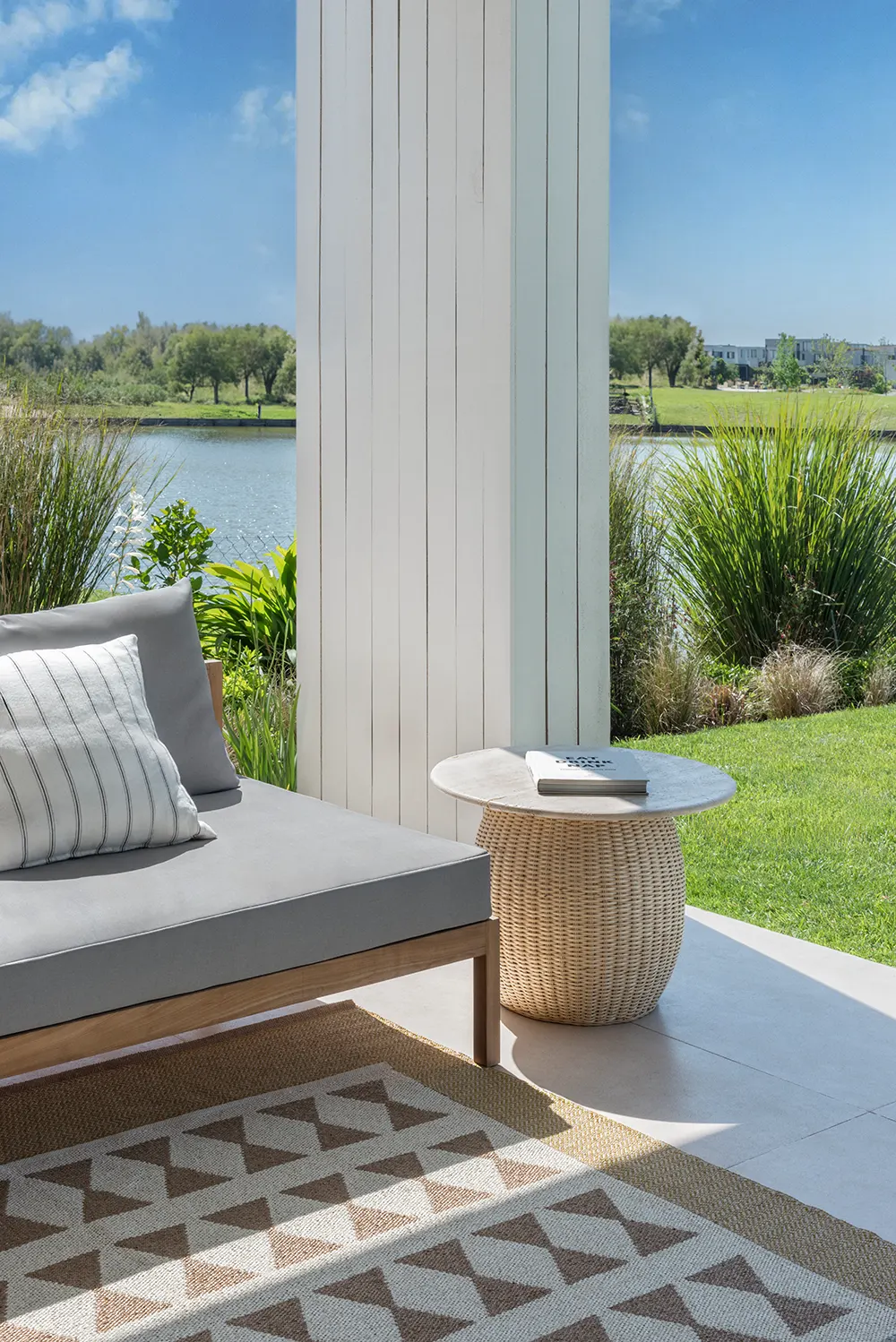
The design avoids small items in favor of spacious, curved furniture. Can you share your thinking behind this “pared-down” aesthetic and how it shapes the experience of the space?
We prefer fewer objects, but carefully chosen ones. Large, well-proportioned pieces that anchor the space without overwhelming it. Small items often get lost or create visual noise. This decision helps make each room feel more orderly and airy, allowing the essentials—light, views, people—to take center stage.
The kitchen and dining area are conceived as gathering points, turning daily rituals into meaningful moments. How did you approach designing spaces that encourage togetherness and elevate the everyday?
To us, cooking, sitting down to eat, or simply chatting at the table are important moments. That’s why we designed these spaces to make people want to stay. We considered comfortable surfaces, smooth circulation, and pleasant materials. Every element was chosen to support daily life and make it a little more special.
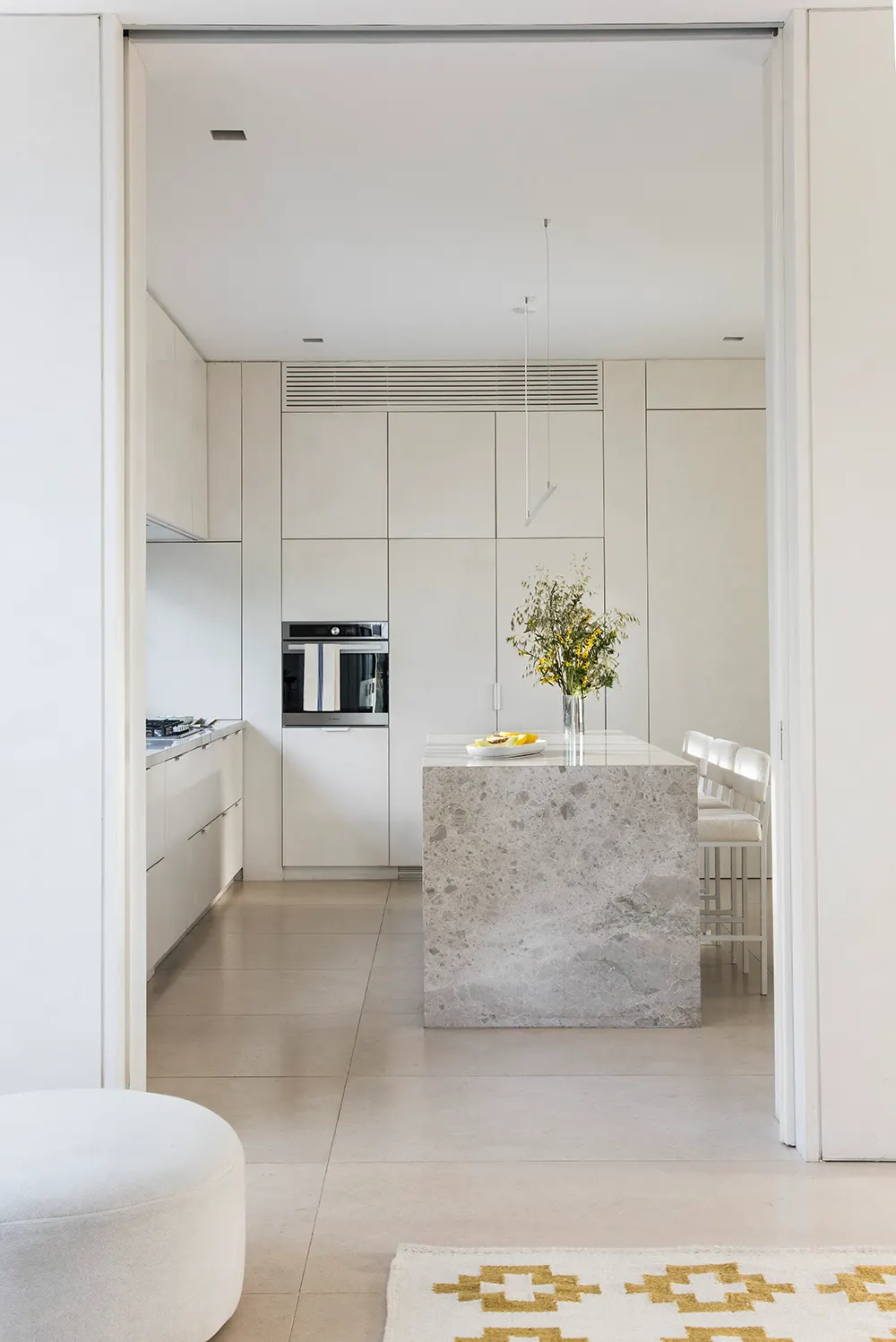
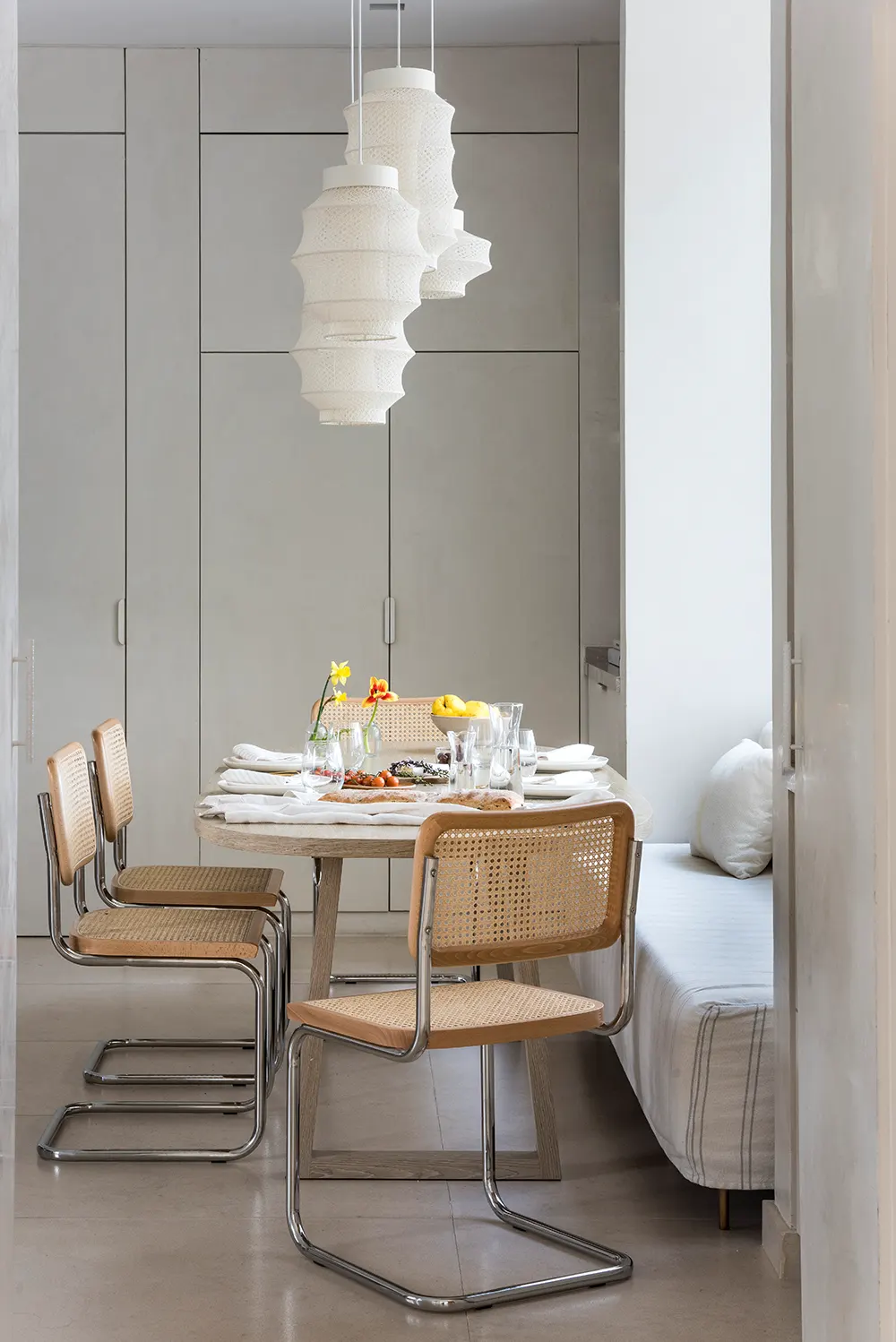
Transparency, reflections, and soft shadows play a significant role in the spatial sequence. How did you work with light, both natural and artificial, to create these effects?
Light was a protagonist from day one. We designed openings to let it in gently, without glare, so it could generate reflections and shadows that shift throughout the day. We also chose lightweight curtains and warm, subdued artificial lighting to complement rather than overwhelm. The result is a calm, enveloping atmosphere.
Bedrooms are described as private sanctuaries, with a focus on understated sophistication. What were your priorities when designing these intimate spaces, and how did you ensure a sense of comfort without excess?
We wanted the bedrooms to convey tranquility and warmth. We used few elements, but ones that were carefully chosen: good beds, soft textiles, warm lighting. You don’t need much to feel good, but you do need to tend to the details. These are spaces meant for disconnecting, resting, and feeling held.
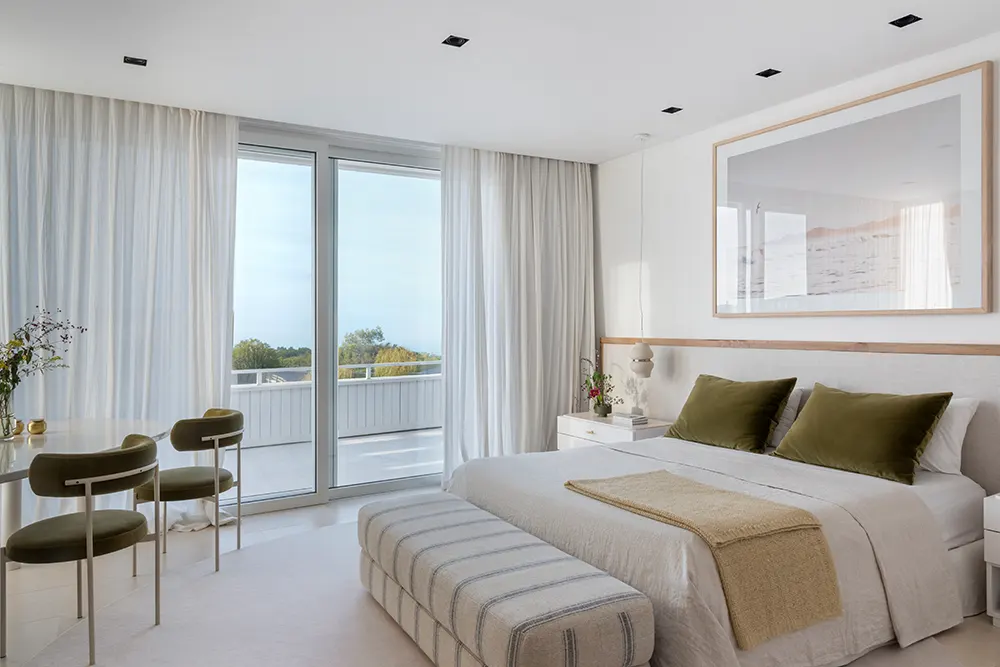
You mention that every object, textile, and artwork is selected to reinforce the home’s intimate character. How do you curate these elements to maintain both coherence and a sense of personal identity for the inhabitants?
We select each piece with great care, looking to maintain a common thread, but also a soul. We favor objects that tell a story, that have a connection to the place or the people who live there. We believe a home’s identity comes more from emotional resonance than aesthetic cohesion.
Estudio Melazza’s philosophy is to design with soul, crafting spaces that accompany daily life with dignity and care. How does Casa Salt Rough embody this philosophy, and what do you hope its inhabitants feel as they move through the home?
This house beautifully reflects how we like to work: by designing real, livable spaces where one can feel comfortable and at peace. It’s not just about looking good, it’s about feeling good. We hope the people who live here will feel free to relax, enjoy, and connect––with the surroundings and with themselves. A home that supports, rather than imposes.
